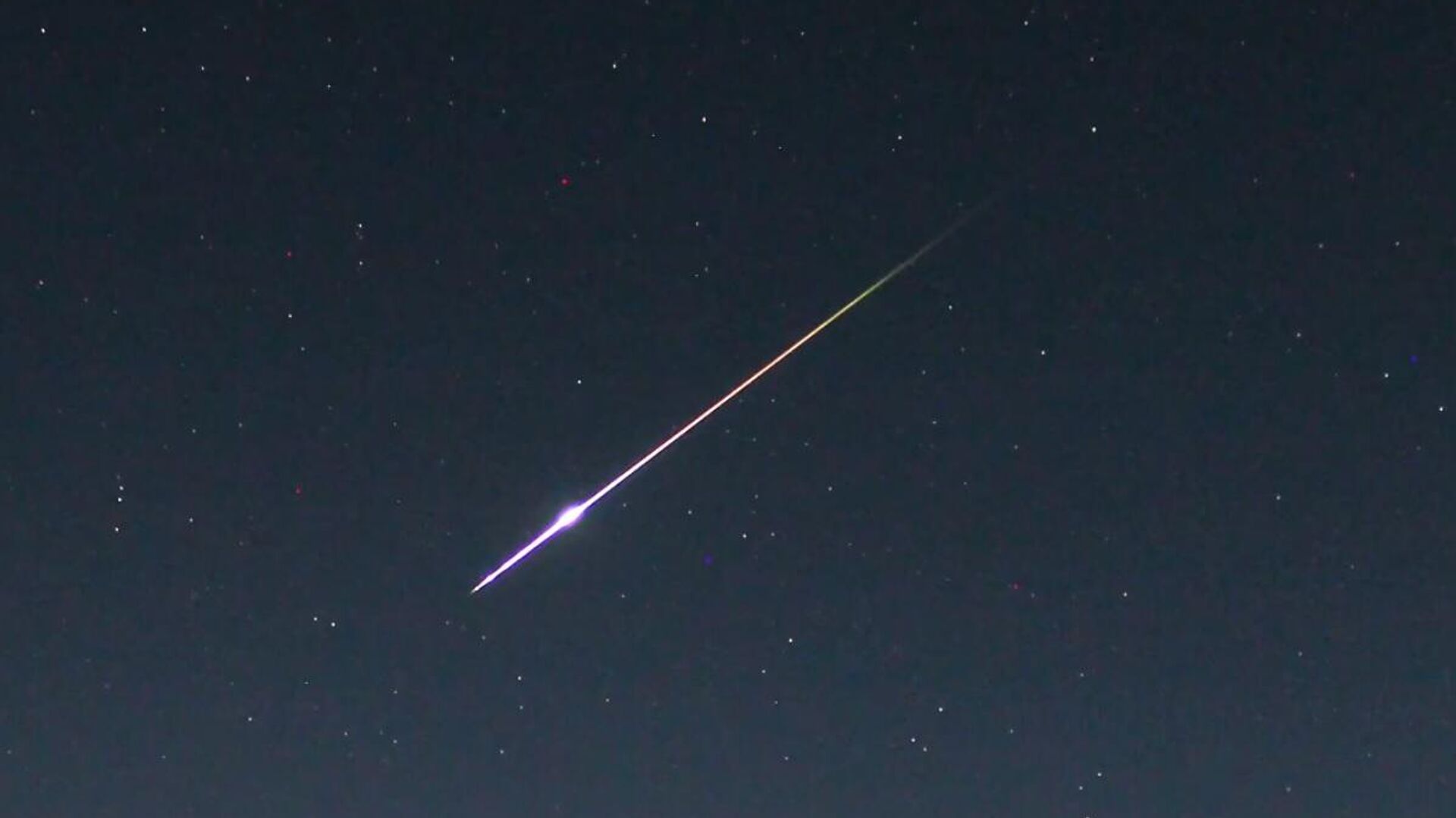https://sputnikglobe.com/20230808/video-australians-stunned-as-meteor-lights-up-melbourne-skies-prompts-loud-bang-1112451381.html
Video: Australians Stunned as 'Meteor' Lights Up Melbourne Skies, Prompts 'Loud Bang'
Video: Australians Stunned as 'Meteor' Lights Up Melbourne Skies, Prompts 'Loud Bang'
Sputnik International
Melbourne residents were at the forefront of sharing their firsthand accounts, but individuals from Geelong and Bendigo also reported witnessing the event.
2023-08-08T03:38+0000
2023-08-08T03:38+0000
2025-04-07T11:07+0000
beyond politics
australia
viral video
meteor
meteor
brad tucker
viral news
https://cdn1.img.sputnikglobe.com/img/07e6/0b/12/1104354536_0:59:1199:733_1920x0_80_0_0_893ead45a6e8e83dd080702ee43b791b.jpg
Residents in Australia were left somewhat stunned overnight Monday after hearing a distinctly "loud bang" sound just as an astonishing slow-moving ball of light traversed the night sky.Social media platforms buzzed with excitement as Melburnians, and even observers from Geelong and Bendigo, shared mesmerizing videos of the spectacle.Professor Alan Duffy, of Swinburne University, labeled the event as the most impressive "light show" he had ever seen, speculating the phenomenon may be linked to an influx of space debris entering Earth's atmosphere.Astrophysicist Dr. Brad Tucker echoed this sentiment, suggesting the sonic boom reported by witnesses could have resulted from the space debris transitioning from an incredibly high speed to a slower pace upon re-entry. The heat generated during this process could have caused the object to break apart, contributing to the mesmerizing display.While some - including the Australian space agency - speculated the sight may have been tied to a Russian military satellite launch from the Plesetsk cosmodrome, an official cause has yet to be exactly pinpointed.
australia
Sputnik International
feedback@sputniknews.com
+74956456601
MIA „Rossiya Segodnya“
2023
News
en_EN
Sputnik International
feedback@sputniknews.com
+74956456601
MIA „Rossiya Segodnya“
Sputnik International
feedback@sputniknews.com
+74956456601
MIA „Rossiya Segodnya“
australia victoria meteor, bright light in australian sky, what happened in australia meteor, was there a meteor in australia, video of australia meteor watch
australia victoria meteor, bright light in australian sky, what happened in australia meteor, was there a meteor in australia, video of australia meteor watch
Video: Australians Stunned as 'Meteor' Lights Up Melbourne Skies, Prompts 'Loud Bang'
03:38 GMT 08.08.2023 (Updated: 11:07 GMT 07.04.2025) The recent cosmic display left many observers awestruck, with some describing their reactions as being "gobsmacked and mesmerized" while being unable to tear their eyes away from the breathtaking scene.
Residents in Australia were left somewhat stunned overnight Monday after hearing a distinctly "loud bang" sound just as an astonishing slow-moving ball of light traversed the night sky.
Social media platforms buzzed with excitement as Melburnians, and even observers from Geelong and Bendigo, shared mesmerizing videos of the spectacle.
Professor Alan Duffy, of Swinburne University, labeled the event as the most impressive "light show" he had ever seen, speculating the phenomenon may be linked to an influx of space debris entering Earth's atmosphere.
Astrophysicist Dr. Brad Tucker echoed this sentiment, suggesting the sonic boom reported by witnesses could have resulted from the space debris transitioning from an incredibly high speed to a slower pace upon re-entry. The heat generated during this process could have caused the object to break apart, contributing to the mesmerizing display.
"[It’s] essentially having something going from 25,000km an hour to very slow, so that creates a sonic boom as it enters, which is what people heard and that rattling felt... Then you can see it fragmenting. So because it’s a human-made object as it re-enters the Earth ’s atmosphere it heats up and bits break off," said Tucker.
While some - including the Australian space agency - speculated the sight may have been tied to a
Russian military satellite launch from the Plesetsk cosmodrome, an official cause has yet to be exactly pinpointed.


